Village People and Carrie Underwood Highlight Music and Politics Connection at Trump’s Inauguration
Donald Trump’s inauguration ceremony, scheduled for January 20, 2025, promises to be a culturally significant event, blending politics with iconic musical performances. The president-elect, known for his ability to generate media attention, will host renowned artists such as the Village People and country singer Carrie Underwood. The event will take place on the West Lawn of the Capitol in Washington, D.C., featuring a series of performances highlighting the diversity of American music.
The Village People, famous for hits like “Y.M.C.A.” and “Macho Man,” will perform during the event, adding a nostalgic yet symbolic touch for the audience. The inclusion of the group, widely recognized as a symbol of LGBTQ+ culture and the disco era, has sparked mixed reactions, but their cultural impact is undeniable. Carrie Underwood, on the other hand, will reinforce American tradition by performing “America the Beautiful,” accompanied by the U.S. Armed Forces Chorus.
The inauguration’s program reflects Trump’s attempt to promote unity in a deeply divided nation. By incorporating artists of different styles, the event aims to reach a broad spectrum of the public, symbolizing what music represents in terms of identity and national integration.
Village People: From the disco era to the presidential inauguration
The Village People were formed in 1977, at the height of the disco music craze, quickly becoming a global phenomenon. With thematic costumes portraying popular professions, the group captured fans worldwide. Their songs, such as “Y.M.C.A.” and “In the Navy,” transcended generations and remain staples at various events.
The group’s presence at Trump’s inauguration is significant, given its historical ties to LGBTQ+ culture. Over the years, “Y.M.C.A.” has become an anthem of acceptance and celebration. Vocalist Victor Willis’ decision to participate in the event suggests an effort to use music as a unifying force, regardless of political affiliations. This approach contrasts with previous episodes in which the group opposed the unauthorized use of their songs in political campaigns.
Carrie Underwood: Tradition and patriotism
Carrie Underwood is an icon of American country music, with a solid career that includes eight Grammy Awards. Her participation in the inauguration is not just a celebration of her achievements but also a way to reinforce the patriotic values associated with country music. Performing “America the Beautiful” at such a significant event is a testament to her influence and talent.
Her performance will be accompanied by the U.S. Armed Forces Chorus and the Glee Club from the United States Naval Academy, creating a moment of solemnity and patriotism. Carrie’s selection reflects the tradition of featuring country musicians at political events due to the genre’s strong connection to American cultural roots.
The cultural impact of music in politics
The inclusion of artists such as the Village People and Carrie Underwood in the presidential inauguration highlights the intersection of music and politics in the United States. Historically, events like this use musical performances to reinforce messages of unity and national celebration. In Trump’s case, the choice of “Y.M.C.A.” adds a layer of cultural complexity, considering the historical and social context of the song.
Previous inaugurations, such as those of Barack Obama and Joe Biden, also used music to reflect American diversity and values. Obama’s inauguration, for instance, featured Aretha Franklin and Beyoncé, while Biden brought Lady Gaga and Jennifer Lopez. These events demonstrate how music serves as a powerful tool to convey political messages and engage audiences.
Inauguration schedule and featured attractions
Trump’s inauguration schedule begins with a religious service at St. John’s Church, followed by musical performances at the Capitol. Trump and Vice President J.D. Vance will take the oath of office at noon local time, followed by speeches. After the main event, a parade will take place from the Capitol to the White House, culminating in three inaugural balls across the city.
In addition to the Village People and Carrie Underwood, the event will feature tenor Christopher Macchio singing the national anthem and Lee Greenwood performing his iconic “God Bless the USA.” These artists represent various genres and audiences, reinforcing the idea of cultural diversity.
The historical relationship between music and political events
The use of music in political events in the United States dates back to the 19th century when patriotic songs and marches were employed to rally voters. With the advent of television and, more recently, digital media, music has become an even more powerful tool for transmitting messages and stirring emotions.
In recent years, artists have engaged in debates about the use of their songs in political campaigns and events. For example, the Village People criticized Trump in 2020 for unauthorized use of their songs. Their decision to perform at the 2025 inauguration marks a significant shift, indicating an attempt to move beyond divisions and focus on messages of unity.
Key facts and trivia about the featured artists
- The Village People have sold over 100 million records worldwide, establishing themselves as one of the most iconic groups of the disco era.
- “Y.M.C.A.” was released in 1978 and topped charts in multiple countries, becoming a timeless anthem.
- Carrie Underwood gained fame after winning the fourth season of “American Idol” in 2005, launching her career into immediate success.
- Lee Greenwood received national recognition for “God Bless the USA,” which became an emblematic song during crises and patriotic celebrations in the United States.
Timeline of major musical moments at presidential inaugurations
- 1961 – John F. Kennedy: Frank Sinatra organized an inaugural ball with major Hollywood stars.
- 2009 – Barack Obama: Aretha Franklin sang “My Country, ‘Tis of Thee” during the ceremony.
- 2021 – Joe Biden: Lady Gaga performed the national anthem, while Jennifer Lopez and Garth Brooks also took the stage.
- 2025 – Donald Trump: Village People, Carrie Underwood, and other artists emphasize the diversity of American music.
Relevant statistics and data about the 2025 inauguration
- Over 200,000 people are expected to attend the event in Washington, D.C., despite winter temperatures.
- The ceremony will host global leaders, including representatives from over 50 countries.
- The estimated economic impact for Washington, D.C., during the inauguration is $100 million, driven by tourism and associated events.
Cultural and political reflections of music at presidential events
The inclusion of iconic music in political events reflects cultural changes and leaders’ attempts to connect with diverse audiences. “Y.M.C.A.” is a symbol of inclusion and diversity, while “America the Beautiful” resonates with patriotic values. Choosing these artists for Trump’s inauguration demonstrates how music can transcend barriers and unite people during historical moments.

Donald Trump’s inauguration ceremony, scheduled for January 20, 2025, promises to be a culturally significant event, blending politics with iconic musical performances. The president-elect, known for his ability to generate media attention, will host renowned artists such as the Village People and country singer Carrie Underwood. The event will take place on the West Lawn of the Capitol in Washington, D.C., featuring a series of performances highlighting the diversity of American music.
The Village People, famous for hits like “Y.M.C.A.” and “Macho Man,” will perform during the event, adding a nostalgic yet symbolic touch for the audience. The inclusion of the group, widely recognized as a symbol of LGBTQ+ culture and the disco era, has sparked mixed reactions, but their cultural impact is undeniable. Carrie Underwood, on the other hand, will reinforce American tradition by performing “America the Beautiful,” accompanied by the U.S. Armed Forces Chorus.
The inauguration’s program reflects Trump’s attempt to promote unity in a deeply divided nation. By incorporating artists of different styles, the event aims to reach a broad spectrum of the public, symbolizing what music represents in terms of identity and national integration.
Village People: From the disco era to the presidential inauguration
The Village People were formed in 1977, at the height of the disco music craze, quickly becoming a global phenomenon. With thematic costumes portraying popular professions, the group captured fans worldwide. Their songs, such as “Y.M.C.A.” and “In the Navy,” transcended generations and remain staples at various events.
The group’s presence at Trump’s inauguration is significant, given its historical ties to LGBTQ+ culture. Over the years, “Y.M.C.A.” has become an anthem of acceptance and celebration. Vocalist Victor Willis’ decision to participate in the event suggests an effort to use music as a unifying force, regardless of political affiliations. This approach contrasts with previous episodes in which the group opposed the unauthorized use of their songs in political campaigns.
Carrie Underwood: Tradition and patriotism
Carrie Underwood is an icon of American country music, with a solid career that includes eight Grammy Awards. Her participation in the inauguration is not just a celebration of her achievements but also a way to reinforce the patriotic values associated with country music. Performing “America the Beautiful” at such a significant event is a testament to her influence and talent.
Her performance will be accompanied by the U.S. Armed Forces Chorus and the Glee Club from the United States Naval Academy, creating a moment of solemnity and patriotism. Carrie’s selection reflects the tradition of featuring country musicians at political events due to the genre’s strong connection to American cultural roots.
The cultural impact of music in politics
The inclusion of artists such as the Village People and Carrie Underwood in the presidential inauguration highlights the intersection of music and politics in the United States. Historically, events like this use musical performances to reinforce messages of unity and national celebration. In Trump’s case, the choice of “Y.M.C.A.” adds a layer of cultural complexity, considering the historical and social context of the song.
Previous inaugurations, such as those of Barack Obama and Joe Biden, also used music to reflect American diversity and values. Obama’s inauguration, for instance, featured Aretha Franklin and Beyoncé, while Biden brought Lady Gaga and Jennifer Lopez. These events demonstrate how music serves as a powerful tool to convey political messages and engage audiences.
Inauguration schedule and featured attractions
Trump’s inauguration schedule begins with a religious service at St. John’s Church, followed by musical performances at the Capitol. Trump and Vice President J.D. Vance will take the oath of office at noon local time, followed by speeches. After the main event, a parade will take place from the Capitol to the White House, culminating in three inaugural balls across the city.
In addition to the Village People and Carrie Underwood, the event will feature tenor Christopher Macchio singing the national anthem and Lee Greenwood performing his iconic “God Bless the USA.” These artists represent various genres and audiences, reinforcing the idea of cultural diversity.
The historical relationship between music and political events
The use of music in political events in the United States dates back to the 19th century when patriotic songs and marches were employed to rally voters. With the advent of television and, more recently, digital media, music has become an even more powerful tool for transmitting messages and stirring emotions.
In recent years, artists have engaged in debates about the use of their songs in political campaigns and events. For example, the Village People criticized Trump in 2020 for unauthorized use of their songs. Their decision to perform at the 2025 inauguration marks a significant shift, indicating an attempt to move beyond divisions and focus on messages of unity.
Key facts and trivia about the featured artists
- The Village People have sold over 100 million records worldwide, establishing themselves as one of the most iconic groups of the disco era.
- “Y.M.C.A.” was released in 1978 and topped charts in multiple countries, becoming a timeless anthem.
- Carrie Underwood gained fame after winning the fourth season of “American Idol” in 2005, launching her career into immediate success.
- Lee Greenwood received national recognition for “God Bless the USA,” which became an emblematic song during crises and patriotic celebrations in the United States.
Timeline of major musical moments at presidential inaugurations
- 1961 – John F. Kennedy: Frank Sinatra organized an inaugural ball with major Hollywood stars.
- 2009 – Barack Obama: Aretha Franklin sang “My Country, ‘Tis of Thee” during the ceremony.
- 2021 – Joe Biden: Lady Gaga performed the national anthem, while Jennifer Lopez and Garth Brooks also took the stage.
- 2025 – Donald Trump: Village People, Carrie Underwood, and other artists emphasize the diversity of American music.
Relevant statistics and data about the 2025 inauguration
- Over 200,000 people are expected to attend the event in Washington, D.C., despite winter temperatures.
- The ceremony will host global leaders, including representatives from over 50 countries.
- The estimated economic impact for Washington, D.C., during the inauguration is $100 million, driven by tourism and associated events.
Cultural and political reflections of music at presidential events
The inclusion of iconic music in political events reflects cultural changes and leaders’ attempts to connect with diverse audiences. “Y.M.C.A.” is a symbol of inclusion and diversity, while “America the Beautiful” resonates with patriotic values. Choosing these artists for Trump’s inauguration demonstrates how music can transcend barriers and unite people during historical moments.

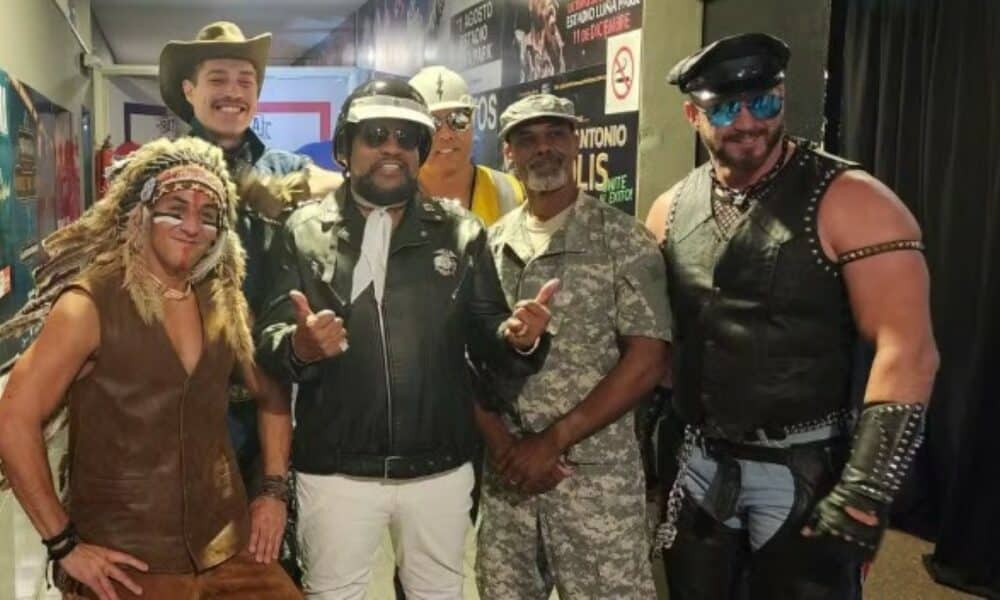
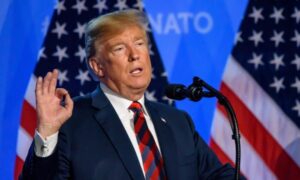

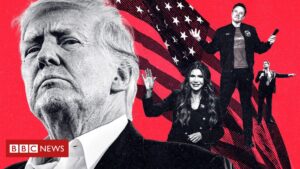

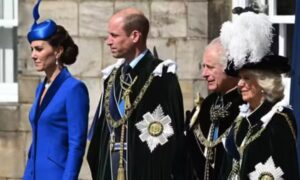


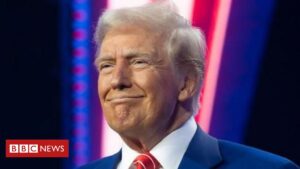







Publicar comentário